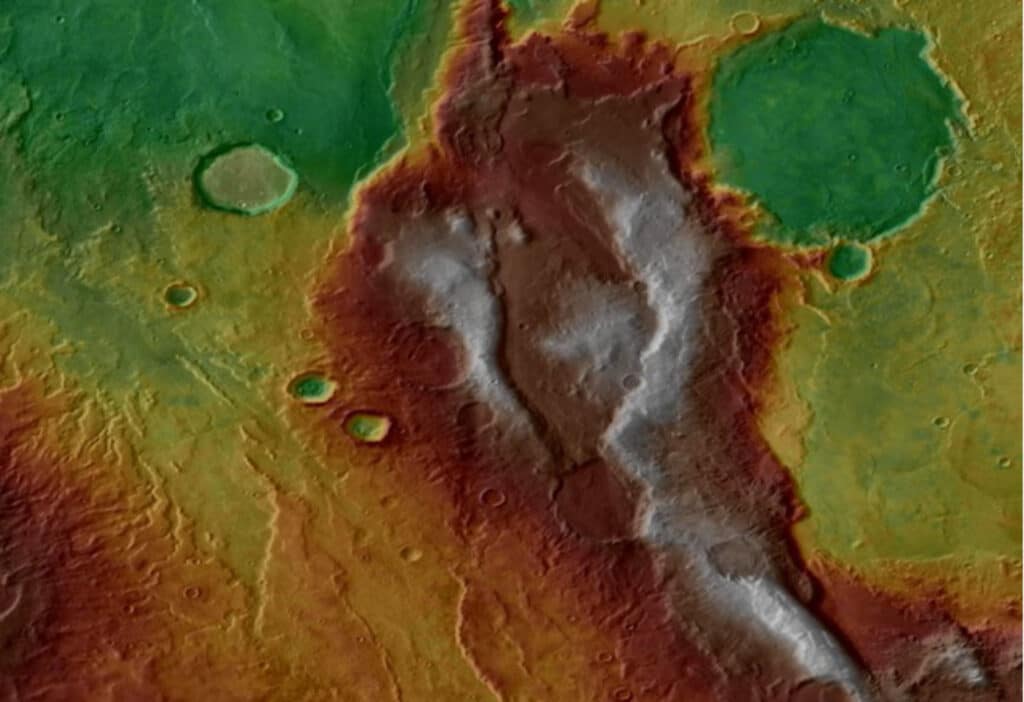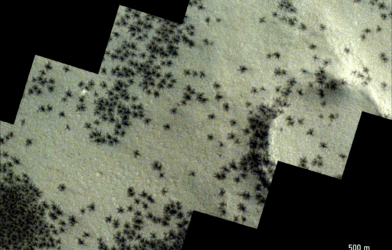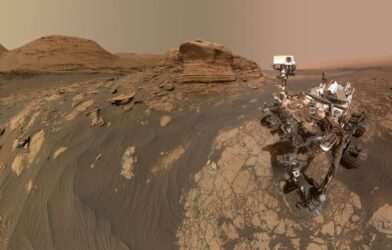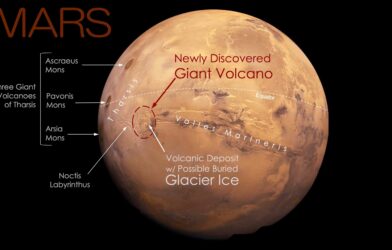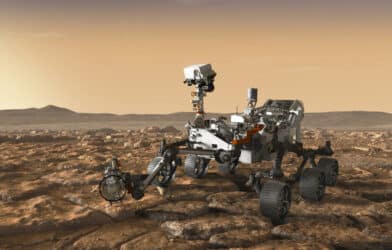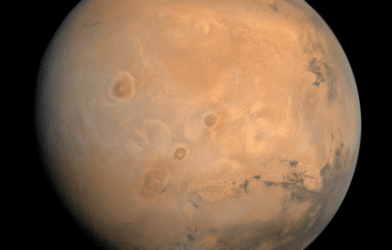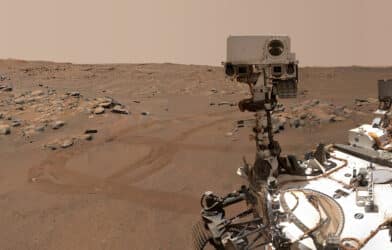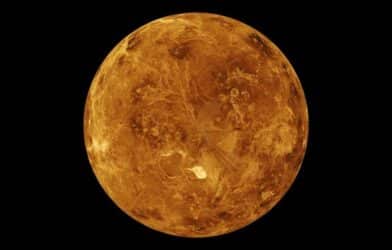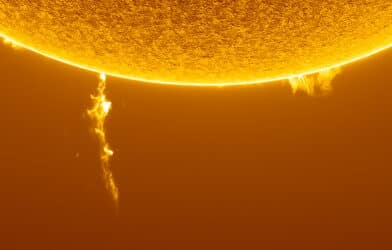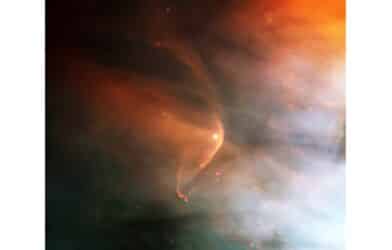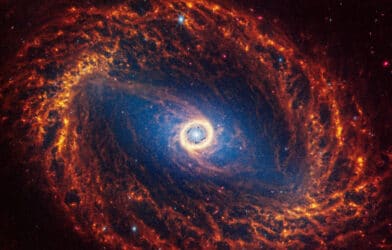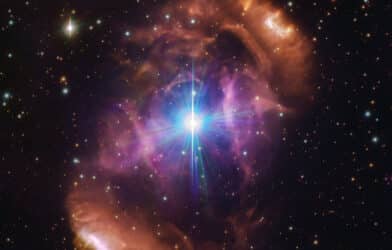Ancient volcanoes on Mars may unlock secrets into Earth’s own planetary evolution. Researchers from The University of Hong Kong (HKU) are revealing a complexity and diversity far beyond what was previously understood. The findings not only transforms our understanding of Martian volcanism but also offers profound implications for the study of planetary evolution and crustal recycling processes.
Volcanoes, a common feature on many solid planets within our solar system, including Earth, result from magmatic activity deep within a planet’s crust. On Earth, the movement and interaction of tectonic plates drive volcanism, a process known as plate tectonics. Mars, however, lacks these plate tectonics, leading scientists to ponder the mechanisms driving its volcanic activity.
HKU scientists have introduced a compelling theory: Mars experiences a form of crust recycling known as vertical tectonics. This early form of tectonics suggests a process where intense volcanic activity causes the crust to collapse into the mantle, leading to the formation of magmas with high silica content due to the re-melting of rocks.
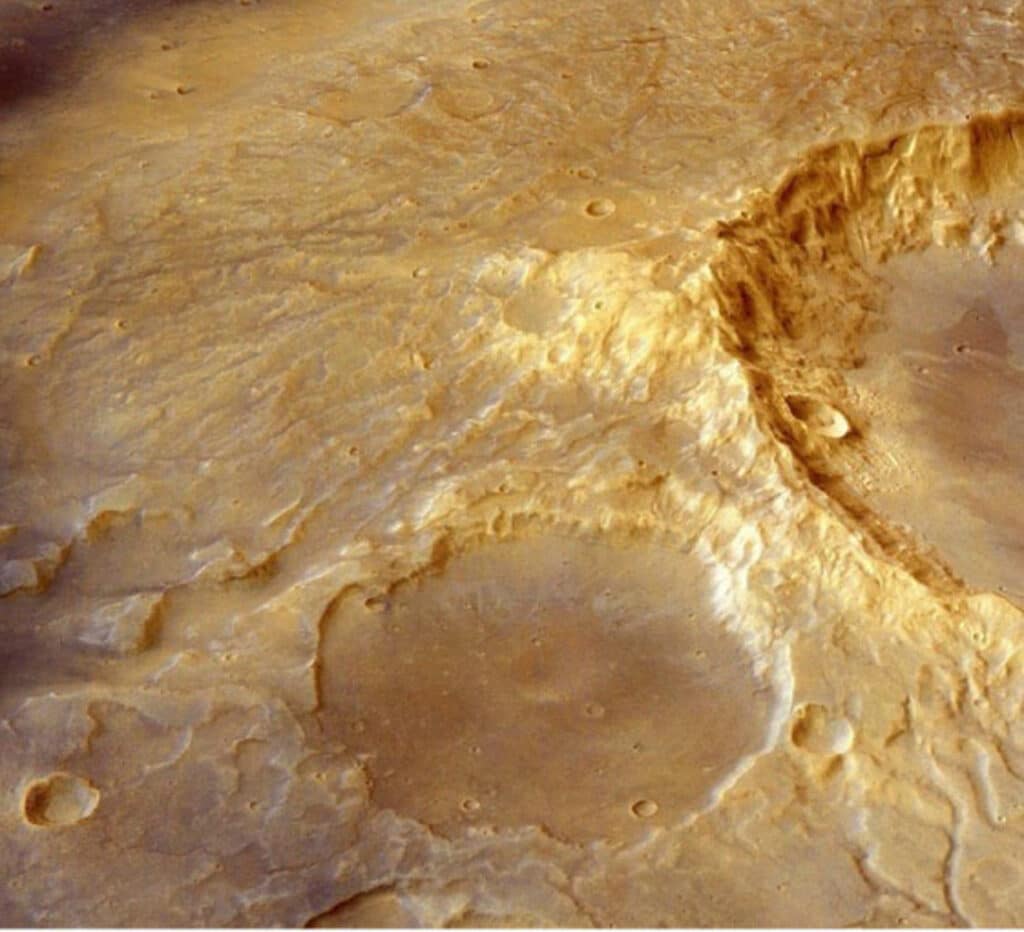
“We have known for decades that Mars has volcanoes, but most of the recognized volcanoes correspond to large basaltic shield volcanoes similar to the ones that make up Hawaii,” says study author Joseph Michalski, a professor and geologist in the Department of Earth Sciences at HKU, in a media release. “In this work, we show that the ancient crust has many other types of volcanoes such as lava domes, stratovolcanoes, calderas and large shields of ash, not lava. Further, most scientists see Mars as a planet composed of basalt, which has low silica content and represents little crustal evolution, but these volcanoes have high silica content which means they formed from a complex process of magma evolution not known before.”
The implications of these findings extend beyond the red sands of Mars to our own planet. The concept of vertical tectonics, while hypothesized to have occurred on ancient Earth during the Archean period (more than 3 billion years ago), has been difficult to verify due to the extensive modification of early terrestrial rocks by later geological activity. Mars, with its preserved ancient crust and lack of plate tectonics, serves as a time capsule that allows scientists to explore and understand the early processes of crustal recycling that may have been prevalent on Earth.
“This is a significant discovery because it has revealed that crustal recycling can occur not only in plate tectonic regimes dominated by horizontal movements, but can also occur in pre-plate tectonic regimes dominated by vertical movements,” notes Guochun Zhao, the Chair Professor of HKU Earth Sciences. “This finding can help earth scientists revolve the long-term controversial issues of how and when felsic continents formed in our planet (Earth).”
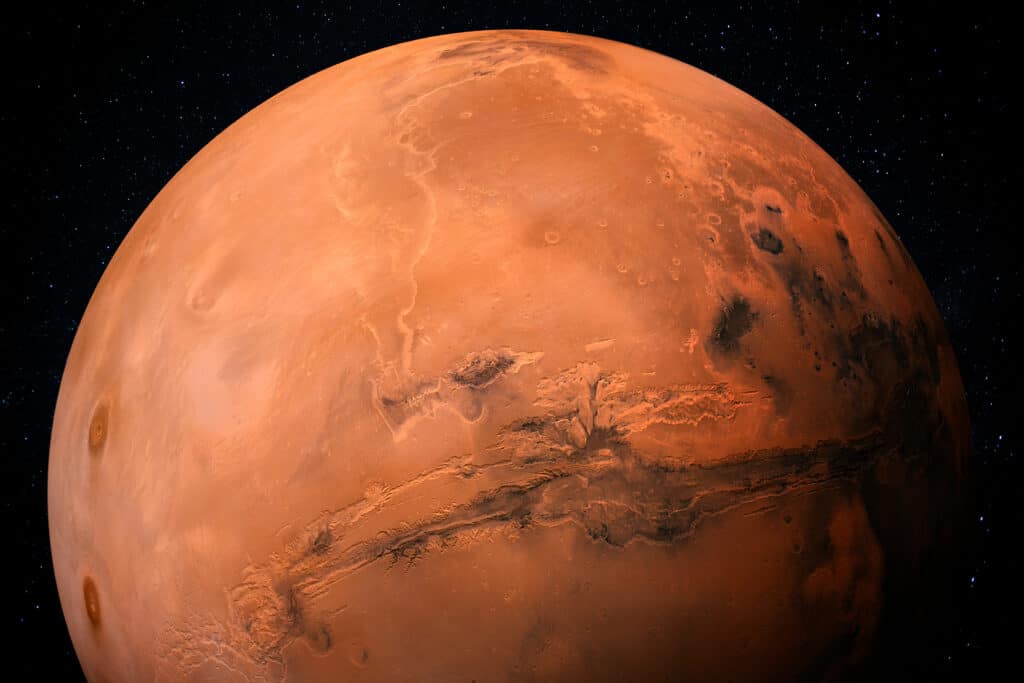
This study not only challenges the previous understanding of Martian volcanism but also opens new avenues for the study of planetary geology.
“Mars contains critical geological puzzle pieces that help us understand not only that planet, but the Earth as well,” concludes Michalski. “Martian volcanism is much more complex and diverse than has been previously thought.”
The study is published in the journal Nature Astronomy.
